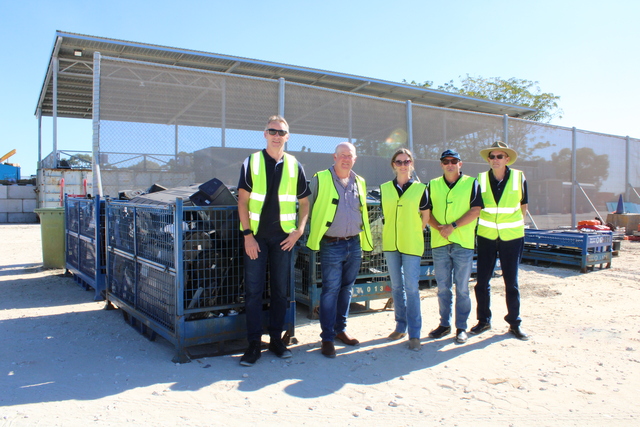Australian Local Government Women’s Association (ALGWA) National President, Kaele Way, said that while the recent Queensland elections saw females winning 34 per cent of Councillor positions, there is still a way to go. She was speaking at the ALGWA Victoria Branch Conference, hosted by the City of Darebin in April.
“It is great news that the number of women in Local Government is increasing,” she said. “But there is still work to be done. We need to see more women standing for election and getting involved in Local Government, so we can ultimately achieve a
50 plus one per cent result.
“Simple ways to get these numbers up is by ensuring induction programs are in place and making sure Council websites advertise upcoming elections.”
Victorian Minister for Local Government, Richard Wynne, said ALGWA is well placed to further progress the number of women Councillors and women in senior roles.
“ALGWA has a close connection with the Australian Local Government Association, which is represented by its President on the Council of Australian Government (COAG), which makes key Government decisions.
“2008 marks the centenary of women’s suffrage in Victoria and if ever there was a year to break down barriers preventing women from standing for Local Government – this is it. As Minister, my job is to help get those barriers out of the way.
“New allowances that we have developed for Councillors, together with a review of conduct, are two key ways we hope to achieve this.”
The Minister said that while people do not go into Local Government expecting a salary, they should be remunerated in recognition of their time and effort.
“Remuneration is a major roadblock for people standing for Local Government, particularly women, who can’t afford to be out of pocket for things like additional childcare, or staff to replace them in their own businesses,” he said. “We want to remove these disincentives and we believe the remuneration package we have come up with is fair.”
Also speaking at the conference, Swan Hill Rural City Councillor Yvonne Jennings said there are two ways of working – the men’s way and the women’s way.
“Men generally look to move straight up the ladder – they don’t care who is in their way and they use techniques of bullying, self interest and a win/lose relationship,” she said. “Women tend to be more inclusive, supporting and nurturing and look at the longterm big picture. No one method is right. A mix of both techniques creates a healthy working culture.”
In taking up the challenge of working in a male dominated world, Yvonne Jennings said women need to look at strategies to not only cope, but strive.
“Only 17 per cent of Shire Presidents and Mayors across the country are female,” she said. “This means 50 per cent of the population are under represented and under utilised. We need action now. After 100 years of having a vote, it is time to get out there and take up the challenge.”
Yvonne Jennings left delegates with a couple of tips for getting more women to the Council table:







